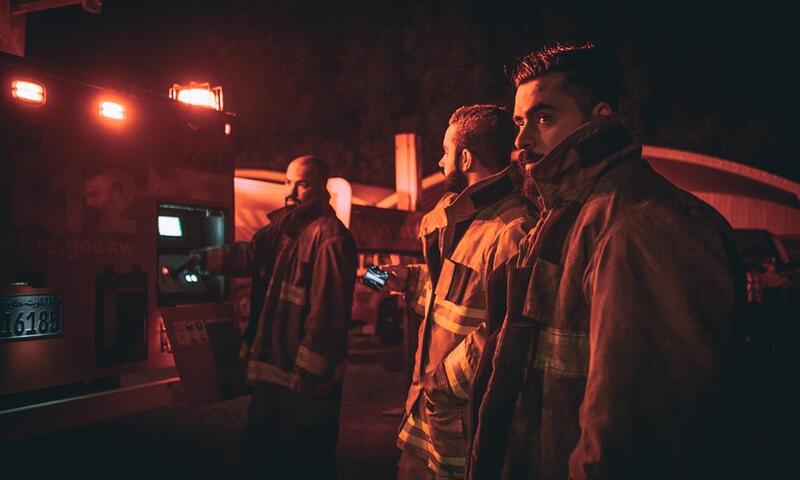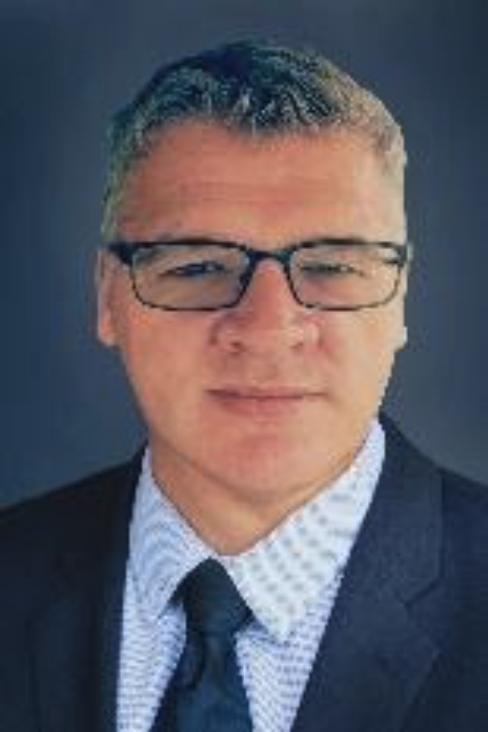Building Bridges on the Frontlines

Dependability is the foundation of relationship building. Paul Cobb, chaplain for the California State Guard and Orange County Fire Authority, shares how to build relationships with first responders on the front lines in today's blog. Whatever your form of ministry, Paul encourages readers to practice ministry of presence, offer practical resources, and lead with vulnerability.
Standing outside the small tent-city on a brisk, foggy morning at the California Army National Guard base camp just outside of Felton, California, the commander began his morning brief to his soldiers with a loud, “Good morning, soldiers. I want you to meet the chaplain assigned to our unit for the duration of this mission.” Having just filled their bellies with a hot breakfast, the soldiers were anxious to prep their equipment for the day. For some teams, it was an hour drive to where they would join with Cal Fire units to provide critical support in the effort to slow the Lightning Complex Fire. Standing there in front of over two hundred civilian soldiers trained as fire handcrews suddenly felt like the loneliest place in the world.
Because we had been called up a few days later than the unit, my assistant and I did not have the luxury of building close relationships during the training the unit members had participated in prior to their arrival to the fire mission. The military is a warrior culture where close bonds are formed over days, weeks, and even months of shared experiences. Thus, we were looked at as outsiders for the first few days since we had missed this vital component of unit training.
To some soldiers, the word chaplain invokes images of compulsory spirituality and attendance to sacred rituals. However, being a chaplain, at its base level, is what some denote as being a “special encourager of humanity.” How, then, could we encourage this group of men and women of diverse age groups, ethnicities, and backgrounds?
For safety reasons, we did not always have access to the handcrews while they were out on the fire lines, so this made our morning and evening activities with them even more important. When we were able to visit with them on the fire lines, it was less about spirituality or religion and more a calming, reassuring presence of encouragement.
This past fire season was more challenging for the soldiers assigned to handcrews due to Covid-19 missions, civil unrest, and exhaustion. Now they were asked to serve once more, this time in a highly unpredictable environment where one wrong step could spell disaster. Their attention to their duties did not pause life outside of their commitment. Life, and the challenges it presents, kept moving on. Injuries, illness, financial and legal challenges, school, and employment worries were common presentations.
This is where we come in. Chaplains are uniquely suited to address many of the greatest challenges to effectively communicate resiliency within the warrior culture of the military.
Developing close relationships was priority number one. From the start of our mission, we continued, without hesitancy, to develop close relationships that were of benefit to the soldiers. When those you serve become assured of your dependability, you have reached the required foundation of relationship building. They may observe and evaluate your character before becoming comfortable with your presence, but this is normal. Close relationships are developed by:
-
Ministry of presence. In other words,be there with them. In his book, Unofficial Chaplain: A Handbook for Everyday Service to the People Around You, Warren Crank notes the ministry of presence as “leveraging relationships for good.” By building trust and respect with the soldiers through our consistent presence, they became more accepting of us and our role with the unit. We were there when they woke up in the morning. We greeted them in the breakfast and dinner lines. We walked among them as they prepared their gear. We conversed with them as they waited in long shower lines. We were present.
-
Remember that crisis, setback, and change opens doors. The connectivity that arises from such happenings creates a platform for more meaningful relationships.
-
Meet or surpass expectations. What is expected of a chaplain? Providing guidance on religious matters to the commander is expected, but what goes beyond what is expected to fulfill the servant ethos of a military chaplain? One morning I was approached by a young soldier who was exasperated that there was only one broom for the entire basecamp. That evening when he returned, there were plenty of brooms to go around. Another day a soldier was concerned her house refinance would not be accomplished because she needed to sign documents related to the transaction, but she was hundreds of miles from her husband and home. Upon her return to basecamp that evening, a notary was present with power of attorney documents sent from the bank handling the transaction.
-
Ask what you can do to make their assignment a little easier. It could be as simple as making a store run for necessary hygiene items or lending a charging cord for their phone so they can keep in contact with family members.
-
Talk about shared interests and speak positively. . Our honorable soldiers leave behind family, friends, jobs, hobbies, etc. Getting to know everything about two hundred people is impossible but I can choose one thing that an individual is passionate about, preferably something to which I can relate. This can open doors that might otherwise be shut. And always speak positively! I could join them in complaining about the eating and sleeping arrangements, the weather, or the terrain, but I would reframe it so that the soldier could see that it is only temporary and life will return to normal soon.
-
Offer valuable resources, not just the spiritual ones. In the back of my mind I knew that the mission for the unit was less than thirty days, and I encouraged the soldiers to keep that in mind as well. Do they have jobs to go back to? Were there personal or professional issues to address before the mission was over? For some, the compensation they received was an added relief, but it was going to end. Were they prepared for that inevitability? Knowing what resources are available to the soldiers upon returning to their civilian lives might not seem like a big deal to many, but serving them in small ways let them see that we could be trusted and looked to for guidance.
-
Prayer. I never left a conversation without asking if I could pray for the person(s) I was with. It was never forced, but the soldiers knew that it was available to them.
The impact of those close relationships began to take shape as the soldiers grew to trust us and see us as one of them. They began to focus on why they were there and who they were helping. Now, instead of coming back in the evenings with scenes of desolation still playing in their mind, they began to see that they were making a difference by helping those affected by the fires feel safe and have the chance to rebuild again.
Soon the soldiers were talking about the positive experiences from the mission they will carry with them for the rest of their lives. This was centered around the strong relationships with those with whom they had worked alongside through the many challenges such a mission presents. They began to focus more on the meaningful things of life: family, good health, etc. The strength to push through the day was found in their comrades sharing the same experiences and challenges beside them. Renewed strength was also found in an increased awareness of their spirituality and purpose, their spirit encouraged by a new outlook on their circumstances.
The principal worth of chaplain presence that we discovered in the two monthsspent with fire handcrews was our ability to form relationships through shared life experiences and an impartial outlook that can offer guidance when life’s challenges call. Success is not measured in numbers but found in the strength and closeness of relationships and signs of resiliency in those we serve. Yes, we are to be experts on matters of spirituality, but if we believe that needs only come in one size—spiritual—we have missed the point of serving and impacting lives by nurturing close relationships.
